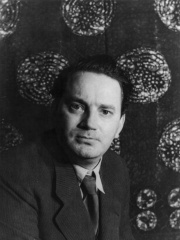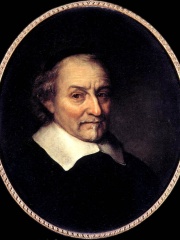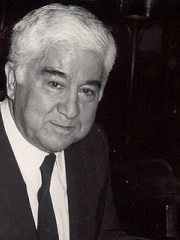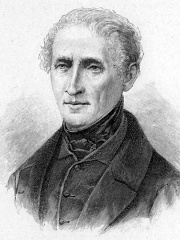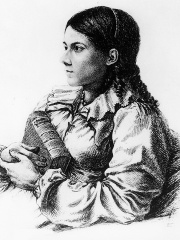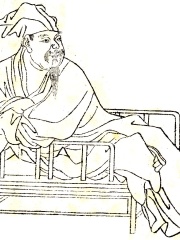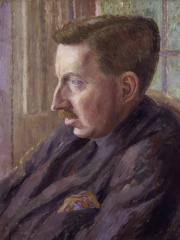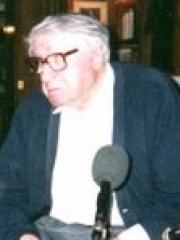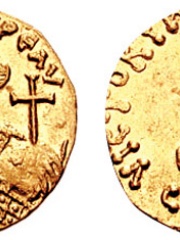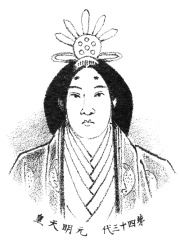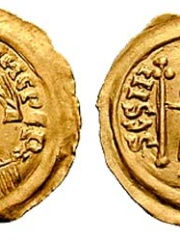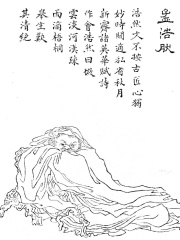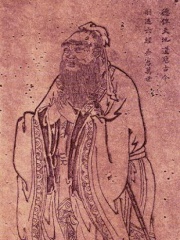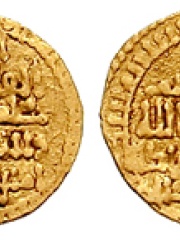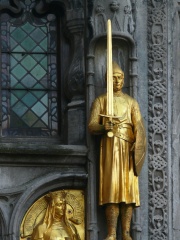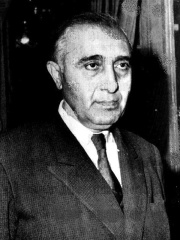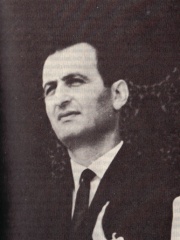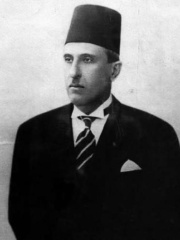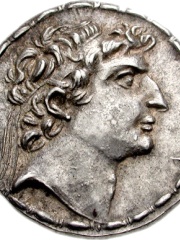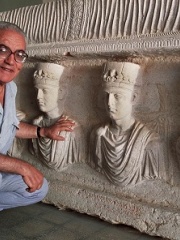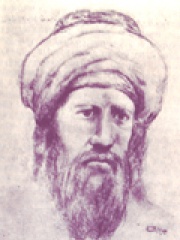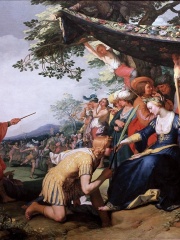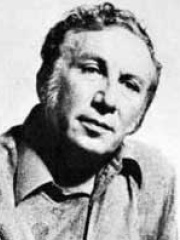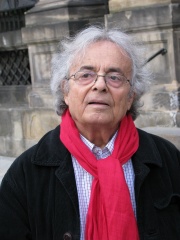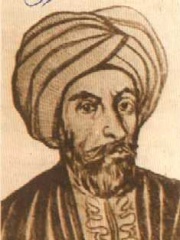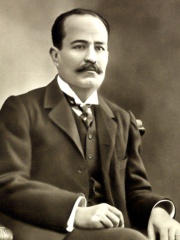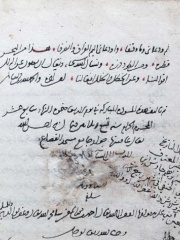Writer
Andrew of Crete
660 - 740
EN.WIKIPEDIA PAGE VIEWS (PV)
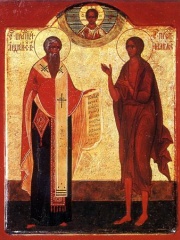
 Andrew of Crete
Andrew of Crete
Andrew of Crete (Greek: Ἀνδρέας Κρήτης, c. 650 – July 4, 712 or 726 or 740), also known as Andrew of Jerusalem, was an 8th-century bishop, theologian, homilist, and hymnographer. He is venerated as a saint in both the Eastern Orthodox Church and the Catholic Church. Read more on Wikipedia
His biography is available in 25 different languages on Wikipedia. Andrew of Crete is the 1,002nd most popular writer (down from 950th in 2024), the 64th most popular biography from Syria (down from 48th in 2019) and the 6th most popular Syrian Writer.
Andrew of Crete is most famous for his Hexameron, a work on six days of creation.
Memorability Metrics
Page views of Andrew of Crete by language
Among Writers
Among writers, Andrew of Crete ranks 1,002 out of 7,302. Before him are Thomas Wolfe, Wilbur Smith, John Grisham, Joost van den Vondel, Aziz Nesin, and Joseph Freiherr von Eichendorff. After him are Agathon, Bettina von Arnim, Ouyang Xiu, E. M. Forster, Henri Troyat, and Nellie Bly.
Most Popular Writers in Wikipedia
Go to all RankingsThomas Wolfe
1900 - 1938
HPI: 68.23
Rank: 996
Wilbur Smith
1933 - 2021
HPI: 68.22
Rank: 997
John Grisham
1955 - Present
HPI: 68.19
Rank: 998
Joost van den Vondel
1587 - 1679
HPI: 68.19
Rank: 999
Aziz Nesin
1915 - 1995
HPI: 68.18
Rank: 1,000
Joseph Freiherr von Eichendorff
1788 - 1857
HPI: 68.18
Rank: 1,001
Andrew of Crete
660 - 740
HPI: 68.16
Rank: 1,002
Agathon
448 BC - 401 BC
HPI: 68.16
Rank: 1,003
Bettina von Arnim
1785 - 1859
HPI: 68.15
Rank: 1,004
Ouyang Xiu
1007 - 1072
HPI: 68.15
Rank: 1,005
E. M. Forster
1879 - 1970
HPI: 68.14
Rank: 1,006
Henri Troyat
1911 - 2007
HPI: 68.11
Rank: 1,007
Nellie Bly
1864 - 1922
HPI: 68.11
Rank: 1,008
Contemporaries
Among people born in 660, Andrew of Crete ranks 2. Before him is Leontios. After him are Empress Genmei, Cunipert, Adela of Pfalzel, and Alpaida. Among people deceased in 740, Andrew of Crete ranks 2. Before him is Zayd ibn Ali. After him are Meng Haoran, Wu Daozi, and Æthelheard of Wessex.
Others Born in 660
Go to all RankingsLeontios
POLITICIAN
660 - 705
HPI: 77.57
Rank: 1
Andrew of Crete
WRITER
660 - 740
HPI: 68.16
Rank: 2
Empress Genmei
POLITICIAN
660 - 721
HPI: 68.02
Rank: 3
Cunipert
POLITICIAN
660 - 700
HPI: 64.22
Rank: 4
Adela of Pfalzel
COMPANION
660 - 734
HPI: 63.92
Rank: 5
Alpaida
POLITICIAN
660 - 705
HPI: 61.95
Rank: 6
Others Deceased in 740
Go to all RankingsZayd ibn Ali
RELIGIOUS FIGURE
695 - 740
HPI: 70.38
Rank: 1
Andrew of Crete
WRITER
660 - 740
HPI: 68.16
Rank: 2
Meng Haoran
WRITER
690 - 740
HPI: 66.67
Rank: 3
Wu Daozi
PAINTER
680 - 740
HPI: 62.74
Rank: 4
Æthelheard of Wessex
POLITICIAN
750 - 740
HPI: 58.25
Rank: 5
In Syria
Among people born in Syria, Andrew of Crete ranks 64 out of NaN. Before him are Al-Qa'im (893), Thierry, Count of Flanders (1100), Salah al-Din al-Bitar (1912), Nicolaus of Damascus (-64), Al-Afdal ibn Salah ad-Din (1170), and Tutush I (1066). After him are Salah Jadid (1926), Shukri al-Quwatli (1891), Apollinaris of Laodicea (310), Seleucus VI Epiphanes (-150), Herodian (170), and Maher al-Assad (1967).
Others born in Syria
Go to all RankingsAl-Qa'im
POLITICIAN
893 - 946
HPI: 68.55
Rank: 58
Thierry, Count of Flanders
NOBLEMAN
1100 - 1168
HPI: 68.41
Rank: 59
Salah al-Din al-Bitar
POLITICIAN
1912 - 1980
HPI: 68.36
Rank: 60
Nicolaus of Damascus
HISTORIAN
64 BC - 4
HPI: 68.31
Rank: 61
Al-Afdal ibn Salah ad-Din
POLITICIAN
1170 - 1225
HPI: 68.27
Rank: 62
Tutush I
POLITICIAN
1066 - 1095
HPI: 68.22
Rank: 63
Andrew of Crete
WRITER
660 - 740
HPI: 68.16
Rank: 64
Salah Jadid
POLITICIAN
1926 - 1993
HPI: 68.09
Rank: 65
Shukri al-Quwatli
POLITICIAN
1891 - 1967
HPI: 68.07
Rank: 66
Apollinaris of Laodicea
RELIGIOUS FIGURE
310 - 390
HPI: 67.99
Rank: 67
Seleucus VI Epiphanes
POLITICIAN
150 BC - 94 BC
HPI: 67.62
Rank: 68
Herodian
WRITER
170 - 250
HPI: 67.46
Rank: 69
Maher al-Assad
MILITARY PERSONNEL
1967 - Present
HPI: 67.15
Rank: 70
Among Writers In Syria
Among writers born in Syria, Andrew of Crete ranks 6. Before him are Khaled al-Asaad (1932), Al-Maʿarri (973), Heliodorus of Emesa (250), Nizar Qabbani (1923), and Adunis (1930). After him are Herodian (170), Abu Tammam (788), Cassius Longinus (213), Usama ibn Munqidh (1095), Jurji Zaydan (1861), and Ahmad ibn Arabshah (1389).
Khaled al-Asaad
1932 - 2015
HPI: 71.78
Rank: 1
Al-Maʿarri
973 - 1057
HPI: 70.73
Rank: 2
Heliodorus of Emesa
250 - 400
HPI: 69.89
Rank: 3
Nizar Qabbani
1923 - 1998
HPI: 68.80
Rank: 4
Adunis
1930 - Present
HPI: 68.71
Rank: 5
Andrew of Crete
660 - 740
HPI: 68.16
Rank: 6
Herodian
170 - 250
HPI: 67.46
Rank: 7
Abu Tammam
788 - 846
HPI: 66.21
Rank: 8
Cassius Longinus
213 - 273
HPI: 65.96
Rank: 9
Usama ibn Munqidh
1095 - 1188
HPI: 64.90
Rank: 10
Jurji Zaydan
1861 - 1914
HPI: 64.33
Rank: 11
Ahmad ibn Arabshah
1389 - 1450
HPI: 64.28
Rank: 12
